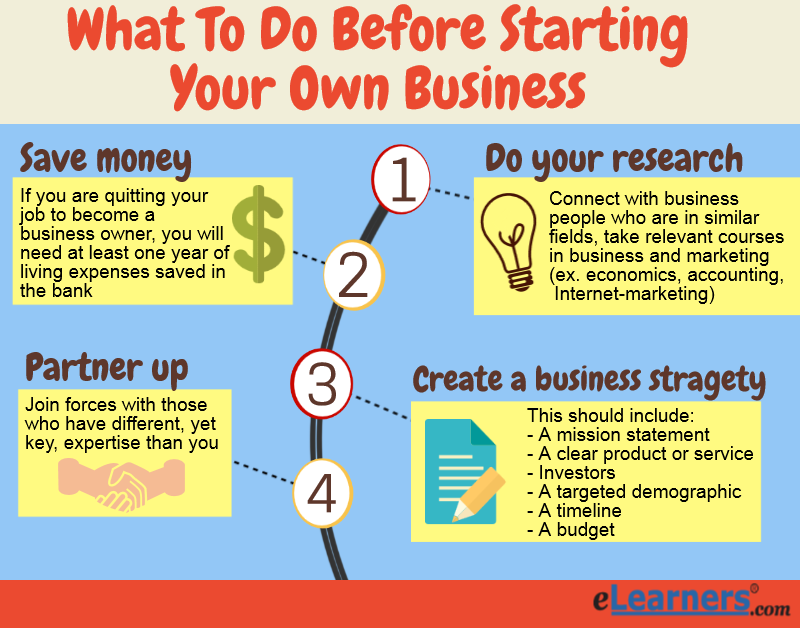It seems that celebrities are constantly in the news for starting one business venture or another. Whether it’s publishing a cookbook, starting a clothing line, or designing their own jewelry, celebrities often make the business of starting a business look as easy as an afternoon hobby. In reality, starting your own business is hardly that simple.
Do Your Research
Before you hang your “Open for Business” sign, you need to know the ins and outs of your future endeavor. According to Syracuse University finance professor Dr. Boyce Watkins, "Almost nothing works in theory. Try to find models that are proven to work, and get your ideas from there. You need to have a keen understanding of your market and exactly what you're going to deliver."
In other words, do your due diligence. Many people have great ideas, but actually seeing them through to fruition is an entirely different experience. Your research shouldn’t end with a Google search, either. Instead, connect with businesspeople who are in similar fields, and polish up on your Business 101s by taking relevant courses. Try enrolling in an economics or accounting course.
If you’re planning an online business, you’ll need to know as much about Web marketing as you do about your product. An Internet-marketing class – involving social media, search engine optimization (SEO), and paid search strategies – could be a smart investment. Dr. Boyce adds, “running a business is like being in your own little university full-time. Keep learning as you go along.”
Save, Save ... and then Save Some More
If you don't have at least one year of living expenses saved in the bank, you probably aren't ready to quit your day job. Remember, you will need to have enough money to sustain yourself as your enterprise is getting off the ground – not including the money you’ll need to invest in its launch.
So how much is enough? There may not be a concrete figure. In her 2011 BusinessWeek article, “Questions to Riddle Before You Start a Business,” Karen E. Klein offers, “if you are giving up a stable job to become a business owner, calculate how much you make now, including such benefits as insurance and a pension if you get them, and add it to the amount you will have to contribute to your business startup. That amount, not counting personal sacrifice and hard work, is the cost of starting a company.” In regard to your saving needs, Dr. Boyce adds, "save your money as if you are preparing to fail. Running your business is going to be a day-to-day grind.”
Create a Business Strategy
Drawing from your research, create an informed business plan that will give you the direction you need. Your business plan should include:
- A mission statement
- A clear product or service
- Investors
- A targeted demographic
- A timeline
- A budget
Having a business strategy will keep you on track and serve as a comparative tool that you can use to periodically chart the progress of your business. Being clear about your goals and expectations – and holding yourself to them – will get you organized and prepared. Dr. Boyce says, “You probably won't get there [running a successful business] as fast as you think, but you'd be amazed at what an extra year or two of pushing can do."
Partner Up
As previously mentioned, there are many people who have innovative business ideas that would fill a void in the marketplace. Having great ideas, though, isn’t the same thing as being a skilled businessperson. If you know you aren’t as business savvy as you would like, but you still want to move at an aggressive pace, consider joining forces with a business-minded partner.
In its 2010 article, “Howdy, Partner: Teaming Up in Business,” The Wall Street Journal offers some targeted insight on business partnership. “Entrepreneurs form partnerships for a number of reasons, such as to pool funds or gain business connections. One of the most important, small-business experts say, is to bring key expertise to the table.”
While starting a business can be quite intimidating, arming yourself with the right information is key to beating the odds – and ultimately, to “owning” your work. Ready to get going?

